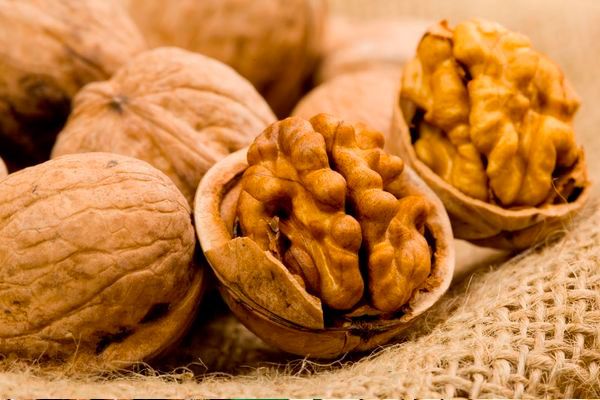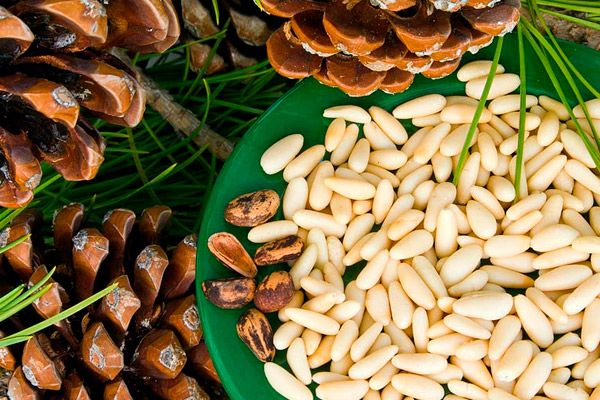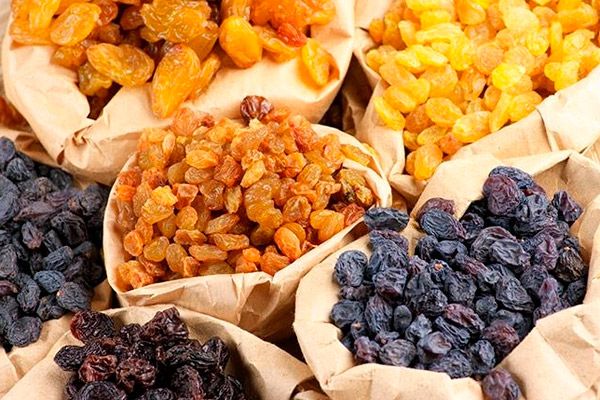Medical expert of the article
New publications
Nuts and dried fruits in gastritis with hyperacidity
Last reviewed: 04.07.2025

All iLive content is medically reviewed or fact checked to ensure as much factual accuracy as possible.
We have strict sourcing guidelines and only link to reputable media sites, academic research institutions and, whenever possible, medically peer reviewed studies. Note that the numbers in parentheses ([1], [2], etc.) are clickable links to these studies.
If you feel that any of our content is inaccurate, out-of-date, or otherwise questionable, please select it and press Ctrl + Enter.
Nuts and dried fruits have always been considered very useful and healthy products that contain a large amount of vitamins and nutrients, which is very important for supporting immunity. However, not everyone can eat such products: for example, nuts and dried fruits are not recommended for gastritis with high acidity. Is this true, or are there exceptions?
 [ 1 ]
[ 1 ]
Indications
Many doctors are sure that eating nuts and dried fruits with gastritis with high acidity is strictly prohibited. Indeed, patients with gastritis are recommended a gentle diet with the use of mashed and chopped food, and nuts and dried fruits are hard products that can initially lead to mechanical irritation of the stomach walls.
Even for a healthy person, nuts and dried fruits can take a long time to digest, and a sick stomach has to bear the double burden.
However, as they say, “if you really want it”, then it is permissible to consume a small amount of dried fruits or nuts, but:
- not on an empty stomach;
- not at the stage of exacerbation of gastritis;
- only in crushed form (for example, grind in a blender or coffee grinder);
- for adults only.
And one more thing: the product must be unprocessed – that is, not fried and without all kinds of chemical and flavor additives.
In order not to harm the body, both nuts and dried fruits should be washed and soaked in water at room temperature for several hours before eating. In this form, these products are less aggressive for the stomach.
Benefits
Regular consumption of nuts and dried fruits helps strengthen the body's defenses, has a beneficial effect on myocardial function, and stabilizes blood pressure.
Dried fruits help prevent or more easily cope with colds and viral diseases, as they supply the body with a large amount of fiber and vitamins.
Nuts contain about 15% protein and a large amount of useful oils that help strengthen blood vessels, improve the condition of the skin and hair, and also give the body a large amount of energy and, as a result, a good mood and vigor.
Regular snacking on nuts or dried fruits during the off-season significantly reduces the risk of developing seasonal depressive states.
Seeds and nuts for gastritis with high acidity
Sunflower seeds are a unique product. And not only because they are very beneficial for the body. Sunflower seeds are one of the few products that are easy to overeat and difficult to dose. Some scientists have even proven the possibility of developing a “sunflower seed” addiction (those who love sunflower seeds know what I’m talking about).
However, in case of gastritis with high acidity, doctors definitely advise to "forget" about seeds. In addition to mechanical microdamage to the mucous tissue of the stomach, seeds can cause increased secretory activity of the duodenum and gall bladder, which can worsen the patient's condition.
In addition, the protein contained in seeds is not well absorbed by the stomach - eating a large amount of seeds can cause increased gas formation and flatulence.
Nuts are better accepted by the human body than seeds. However, they should not be fried, rotten or moldy.
And one more thing: nuts for gastritis with high acidity are better replaced with nut oils - for example, cedar, almond oil, and walnut oil are considered very useful. Such products will provide undoubted benefit not only to the gastric mucosa, but also to the entire body as a whole.
Walnuts
Walnuts are a very popular product in our country, which has a lot of advantages. Walnuts contain quite a lot of vitamins and microelements, they are able to resist radiation and help eliminate anemia.

Many nutritionists recommend eating dishes with walnuts for atherosclerosis, heart and vascular diseases, and diabetes.
The high content of iodine and other microelements allows the nut to be included in the diet of patients with endocrine diseases, in particular, with thyroid pathologies.
Scientists have found that fresh walnuts in small quantities can strengthen and restore the walls of the stomach. For this reason, some doctors recommend eating ground kernels after the acute stage of the inflammatory process, but with gastritis with high acidity - in an amount of no more than 20 g per day. The ground mass can be added to cottage cheese or porridge.
Pine nuts
Pine nuts are rare guests on our table, mainly due to their high cost. However, among other nuts, they are the most useful - they have a record content of vitamins and more than three dozen microelements. In addition, the plant proteins that pine nuts are rich in are close in composition to human tissue proteins, which allows them to be fully absorbed by 99%.

Pine nuts are used for many diseases: atherosclerosis, allergies, myocardial ischemia, gallstone disease, colds, anemia and liver diseases. They are beneficial for both children and the elderly.
It is generally accepted that pine nuts do not irritate the stomach walls as much as other nuts. It is especially recommended to consume a small amount of kernels in case of gastritis with high acidity, as well as in case of peptic ulcer.
The recommended daily amount of pine nuts for gastritis is up to 30 g, subject to normal tolerance.
However, the greatest benefit for gastritis with high acidity will be provided by cedar nut oil: it has enveloping properties, creating a protective layer on the walls of the stomach. It is not only possible, but also necessary to consume such oil for gastritis.
Almond
Almonds can be bitter or sweet, depending on the presence of amygdalin in the kernels - a bitter substance that causes the distinctive almond taste.
It is not recommended to eat bitter or unripe almond kernels if you have gastritis with high acidity, as this can cause severe poisoning, which will only worsen the inflammatory process in the stomach.
Sweet almonds have enveloping, analgesic and anticonvulsant properties. They are taken for liver and gall bladder diseases, urolithiasis, and also for blood purification.
In case of gastritis with high acidity, almonds can reduce the concentration of acid in the stomach if the following conditions for its use are observed:
- almonds must be raw, unprocessed;
- The maximum daily amount of almonds is up to 50 g.
 [ 5 ]
[ 5 ]
Dried fruits for gastritis with high acidity
It is not recommended to consume dried fruits in the form in which they are sold, with gastritis with high acidity, since such products contain little moisture, they are rough and difficult for the stomach to digest. In addition, dried fruits contain different amounts of concentrated fruit acids, which can negatively affect the already high acidity.
To avoid provoking an exacerbation of the inflammatory process, it is recommended:
- or stop eating dried fruits;
- or use them in the form of jelly and compotes;
- or soak a small amount of the product in water for several hours so that the fruit is saturated with moisture and becomes softer.
And one should not forget about one very important condition: dried fruits cannot be eaten during an exacerbation of gastritis, but only in small quantities during the remission stage.
Dried fruits such as pears, apples, and quince are especially well accepted by the body in cases of gastritis with high acidity.
Prunes
Most doctors do not recommend eating prunes to patients with increased acidity in the stomach. The exception is gastritis with increased acidity of an autoimmune nature - in the remission stage, it is allowed to eat washed soaked prunes. What is the reason for this exception to the rule?
Prunes have a fairly strong immunostimulating property, and if you eat them in quantities of up to 30 g per day, you can even “push back” the period of exacerbation of gastritis.
However, despite such benefits of prunes, you should not consume them for gastritis without consulting a doctor, because each organism is individual, and only a doctor, after evaluating the results of tests and studies, will be able to determine whether a dosed intake of prunes will be beneficial in each specific case.
Raisin
A very useful product obtained from grapes is raisins. These dried berries contain a lot of vitamins and minerals, as well as proteins, fats, carbohydrates, fiber, fructose, glucose, antioxidants.

In case of gastritis with high acidity, there is no strict ban on eating raisins. But, as with other dried fruits, there are certain rules for eating it:
- You should not eat raisins without first preparing them: wash the dried berries and scald them with boiling water;
- Dried grapes should not be eaten on an empty stomach;
- In case of gastritis with high acidity, it is permissible to add raisins in small quantities to porridge (for example, oatmeal), compotes and decoctions.
Patients with gastritis should choose only seedless berries.
Dried apricots
Dried apricots have long been used in folk medicine to treat patients with diabetes or heart and vascular diseases. The most famous properties of dried apricots:
- promotes the removal of excess cholesterol from the body;
- stabilizes the function of the pancreas;
- improves hematopoiesis, increases hemoglobin levels;
- strengthens the immune system and has a positive effect on the function of the visual organs.
However, dried apricots contain a fairly large amount of acid and can also provoke the development of allergies, so the consumption of this dried fruit for gastritis with high acidity should be approached with caution.
In addition, in most cases, dried apricots are treated with various chemicals before they reach the store. This is done to give the product a more attractive marketable appearance. Processed fruits are initially harmful to the body and, among other things, can cause digestive disorders and exacerbation of gastritis.
To choose dried apricots that are relatively harmless for patients with gastritis, you need to adhere to the following principles:
- You shouldn’t buy bright orange dried fruits – the more unsightly the dried apricots are, the more likely it is that they haven’t been processed;
- Any dried fruits must be thoroughly washed under running water before consumption, and then soaked in water to completely remove harmful components.
Contraindications
Dried fruits and nuts may be contraindicated:
- people with obesity;
- at the stages of exacerbation of inflammatory processes of the digestive system;
- in case of allergies and individual cases of food intolerance.
- In general, both nuts and dried fruits are considered very useful for the body, but before consumption it is necessary to take into account several important points:
- where and how the product was grown;
- how it was dried and transported;
- whether nuts and dried fruits were treated with chemicals to give them a marketable appearance or to extend their shelf life.
If the product is of high quality, then after preliminary preparation (washing, soaking and chopping) it can be eaten, but in very small portions and not often. Only in this case nuts and dried fruits for gastritis with high acidity can really be beneficial.
 [ 6 ]
[ 6 ]

